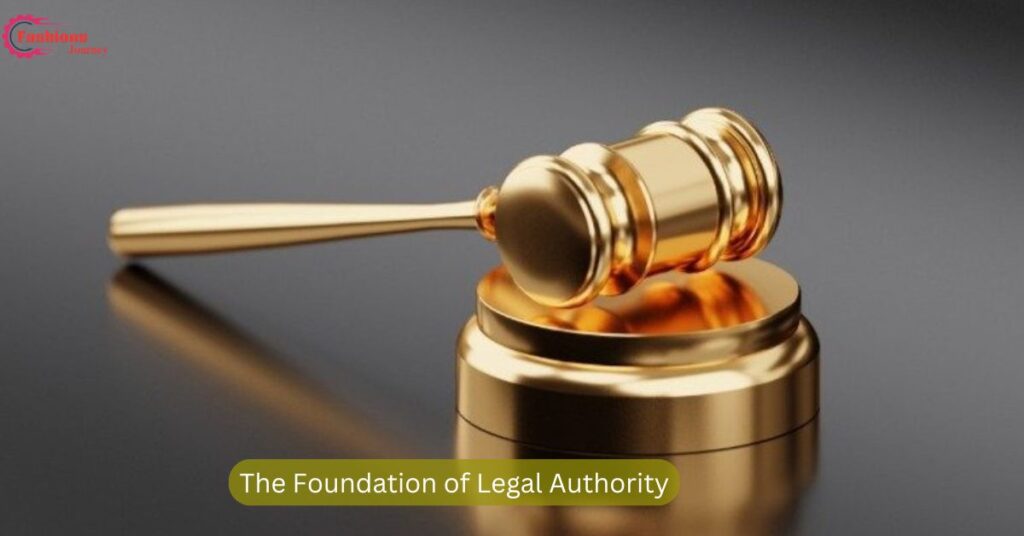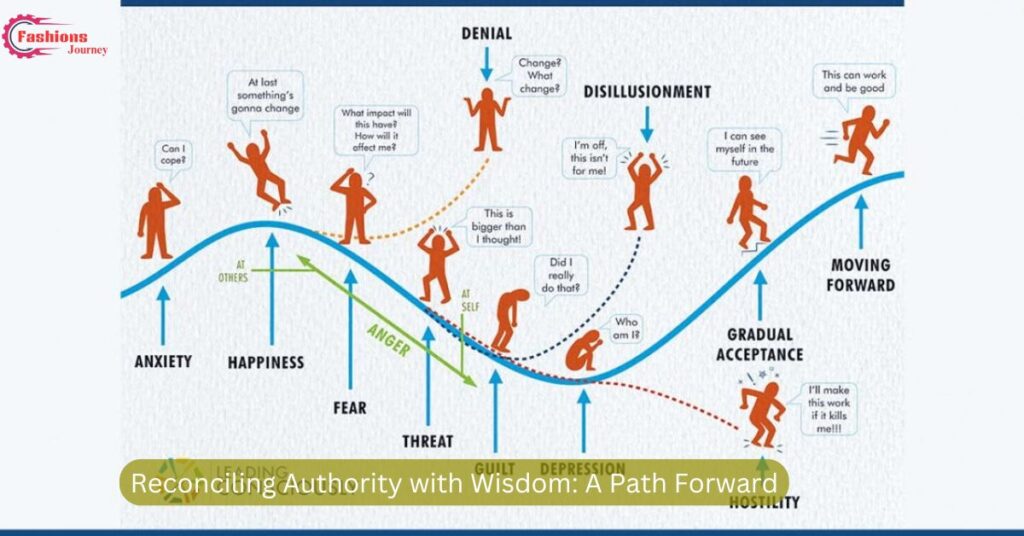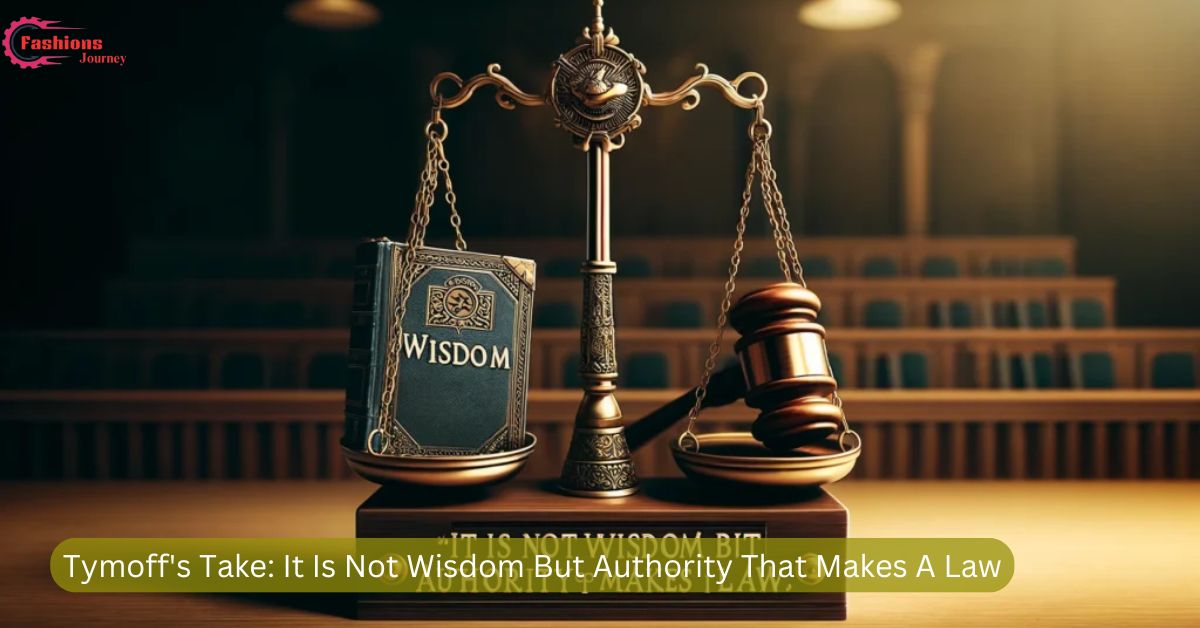In the realm of jurisprudence and political philosophy, few statements have sparked as much debate as Tymoff’s assertion: “It Is Not Wisdom But Authority That Makes A Law.” This provocative claim challenges our fundamental understanding of legal systems and governance.
Tymoff’s statement serves as a stark reminder of the complex relationship between wisdom, authority, and the law-making process.
This article delves deep into the implications of Tymoff’s perspective, exploring its relevance in modern governance and its impact on our understanding of justice and social order.
The Foundation of Legal Authority

At the heart of Tymoff’s assertion lies the concept of legal authority. This fundamental principle serves as the bedrock upon which entire legal systems are built. Legal authority refers to the legitimate power vested in institutions and individuals to create, interpret, and enforce laws within a given jurisdiction.
The sources of legal authority are diverse and often deeply rooted in a nation’s history and culture. In many democratic societies, the ultimate source of legal authority is often traced back to a foundational document such as a constitution. These documents outline the basic framework for governance and delineate the powers granted to different branches of government.
Beyond constitutional foundations, legal authority can also stem from other sources. These may include:
- Statutory law: Laws enacted by legislative bodies.
- Common law: Legal principles derived from judicial decisions.
- Treaties: International agreements that become part of domestic law.
- Executive orders: Directives issued by heads of state or government.
The concept of legal authority is intrinsically linked to the notion of state sovereignty. It is the mechanism through which a state exerts control over its territory and population. This authority grants the state the power to create binding rules, resolve disputes, and maintain social order.
Read This Blog:Discover the Best Minecraft (2009) Game Icons Banners!
Wisdom in Law-making: An Ideal Rarely Achieved

While legal authority provides the structural framework for law-making, wisdom is often touted as the ideal guiding principle in the creation of just and effective laws. Wisdom in law-making implies a deep understanding of societal needs, ethical considerations, and long-term consequences of legal decisions.
The reality of legislative processes often falls short of this lofty ideal. Several factors contribute to the gap between wisdom and actual law-making:
- Political pressures: Lawmakers are often influenced by short-term political gains rather than long-term societal benefits.
- Special interests: Powerful lobbying groups can sway legislation in favor of particular industries or demographics.
- Ideological biases: Personal or party ideologies may cloud judgment and prevent objective decision-making.
- Complexity of issues: Many modern challenges require specialized knowledge that legislators may lack.
- Time constraints: The need for rapid responses to crises can lead to hastily crafted laws without thorough consideration.
- Public opinion: Populist sentiments may drive legislation that is popular but not necessarily wise.
The pursuit of wisdom in law-making is further complicated by the subjective nature of wisdom itself. What one group considers wise may be viewed as foolish or harmful by another. This inherent subjectivity makes it challenging to establish a universally accepted standard of wisdom in legislation.
The Dynamics of Authority and Power in Legislation
The interplay between authority and power in the legislative process is a complex dance that significantly influences the nature of laws created. While authority provides the legal framework for law-making, power dynamics often determine which laws are actually enacted and how they are enforced.
Power in legislation manifests in various forms:
- Political power: The ability to influence legislative agendas and outcomes through party strength or coalition-building.
- Economic power: The capacity of wealthy individuals or corporations to shape legislation through lobbying and campaign contributions.
- Social power: The influence of public opinion, media, and social movements on law-making.
- Institutional power: The authority vested in specific governmental bodies or offices to propose, veto, or implement laws.
These power dynamics can often overshadow considerations of wisdom in the legislative process. Laws may be crafted to serve the interests of those with the most influence, rather than to address the broader needs of society.
The concentration of power in certain hands can lead to laws that reinforce existing inequalities or protect the status quo. This phenomenon is particularly evident in systems where there is a significant imbalance of power between different social, economic, or political groups.
Read This Blog:How I Sleep at Night Knowing I’m Failing All My Classes – Tymoff
Case Studies: When Authority Overrides Wisdom
Throughout history, there have been numerous instances where the exercise of legal authority has resulted in laws that, in hindsight, are widely recognized as unwise, unjust, or harmful. These cases serve as stark illustrations of Tymoff’s assertion, demonstrating how authority, rather than wisdom, can be the driving force behind law-making.
- Jim Crow Laws in the United States The Jim Crow laws, enacted in the late 19th and early 20th centuries in the Southern United States, provide a glaring example of authority being used to create and enforce blatantly unjust legislation. These laws mandated racial segregation in all public facilities under the guise of “separate but equal” treatment of African Americans and whites. Key aspects:
- Legal authority: State and local governments used their legislative powers to enact these laws.
- Lack of wisdom: These laws perpetuated racial discrimination and violated basic human rights.
- Impact: Jim Crow laws entrenched systemic racism and had long-lasting societal effects.
- Nuremberg Laws in Nazi Germany The Nuremberg Laws, passed in 1935 in Nazi Germany, represent another egregious example of authority being used to codify extreme discrimination and set the stage for atrocities. Key aspects:
- Legal authority: The Nazi-controlled Reichstag used its legislative power to pass these laws.
- Lack of wisdom: These laws institutionalized anti-Semitism and stripped Jewish citizens of their rights.
- Impact: The Nuremberg Laws paved the way for the Holocaust and other Nazi atrocities.
- Prohibition in the United States The 18th Amendment to the U.S. Constitution, which prohibited the production, transport, and sale of alcohol, is often cited as an example of well-intentioned but ultimately unwise legislation. Key aspects:
- Legal authority: The amendment was passed through the proper constitutional process.
- Lack of wisdom: Prohibition led to a rise in organized crime and illegal alcohol production.
- Impact: The law was eventually repealed by the 21st Amendment after its negative consequences became apparent.
- Sedition Act of 1798 in the United States This act, which made it a criminal offense to publish “false, scandalous, and malicious writing” against the government, is considered a significant overreach of government authority. Key aspects:
- Legal authority: The act was passed by Congress and signed into law by President John Adams.
- Lack of wisdom: The law violated First Amendment rights and was used to suppress political dissent.
- Impact: The act was allowed to expire in 1801, but it set a troubling precedent for government censorship.
- Aboriginal Protection Act in Australia This series of laws, enacted in various Australian states in the early 20th century, gave the government extensive control over the lives of Aboriginal people. Key aspects:
- Legal authority: State governments used their legislative powers to enact these laws.
- Lack of wisdom: The laws stripped Aboriginal people of basic rights and led to the “Stolen Generations.”
- Impact: The laws caused immense suffering and had long-lasting effects on Aboriginal communities.
Reconciling Authority with Wisdom: A Path Forward

While Tymoff’s observation highlights a troubling aspect of law-making, it also presents an opportunity to reimagine our approach to governance and legislation. The challenge lies in finding ways to infuse the exercise of legal authority with greater wisdom, ensuring that laws serve the broader interests of society rather than merely reflecting the will of those in power.
Several strategies can be employed to bridge the gap between authority and wisdom in law-making:
- Enhanced Transparency
- Open legislative processes: Making law-making procedures more accessible to the public.
- Disclosure requirements: Mandating the revelation of influences on legislation, including lobbying efforts and campaign contributions.
- Public consultations: Involving citizens in the law-making process through hearings and feedback mechanisms.
- Strengthened Checks and Balances
- Robust judicial review: Empowering courts to scrutinize laws for constitutionality and alignment with fundamental rights.
- Independent oversight bodies: Establishing entities to monitor and evaluate the impact of laws.
- Term limits: Preventing the entrenchment of power by limiting the tenure of lawmakers and officials.
- Evidence-Based Law-Making
- Impact assessments: Conducting thorough analyses of potential consequences before enacting laws.
- Post-implementation reviews: Regularly evaluating the effectiveness and impact of existing laws.
- Collaboration with experts: Involving subject matter specialists in the drafting and review of legislation.
- Civic Education and Engagement
- Legal literacy programs: Educating citizens about their rights, the law-making process, and the impact of laws.
- Participatory democracy initiatives: Creating platforms for direct citizen involvement in legislative proposals.
- Media literacy: Empowering citizens to critically analyze information and understand the broader context of legal issues.
- Ethical Framework for Lawmakers
- Codes of conduct: Establishing clear ethical guidelines for those involved in law-making.
- Conflict of interest regulations: Implementing strict rules to prevent personal interests from influencing legislation.
- Ethics training: Providing ongoing education to lawmakers on ethical decision-making and governance.
- Diversity and Representation
- Inclusive representation: Ensuring that legislative bodies reflect the diversity of the populations they serve.
- Minority protections: Implementing mechanisms to safeguard the rights and interests of minority groups in the legislative process.
- Cross-cultural dialogue: Promoting understanding and collaboration across different societal groups in law-making.
- Long-Term Perspective
- Future impact analysis: Considering the long-term consequences of laws beyond immediate political cycles.
- Intergenerational justice: Incorporating the interests of future generations in legislative decision-making.
- Sustainable development goals: Aligning law-making with broader, long-term societal and environmental objectives.
- Technology and Innovation
- AI and data analytics: Utilizing advanced technologies to analyze the potential impacts of proposed laws.
- Digital platforms for engagement: Creating user-friendly interfaces for citizens to participate in the legislative process.
- Blockchain for transparency: Implementing distributed ledger technologies to ensure the integrity of legislative records and voting.
By implementing these strategies, societies can work towards a system where legal authority is guided by wisdom rather than operating in isolation from it. This approach recognizes the necessity of authority in law-making while striving to ensure that this authority is exercised in a manner that is informed, ethical, and beneficial to society as a whole.
FAQ’s
What did Tymoff mean by “It Is Not Wisdom But Authority That Makes A Law”?
Tymoff’s statement highlights that laws are often created and enforced based on the power of authority rather than inherent wisdom or justice.
Can a law be both authoritative and wise?
Yes, laws can embody both authority and wisdom when they are crafted thoughtfully with consideration for justice, societal needs, and long-term impacts.
How does the separation of powers affect the balance between authority and wisdom in law-making?
Separation of powers can help balance authority with wisdom by distributing law-making power and providing checks and balances between different branches of government.
What role does public opinion play in shaping laws?
Public opinion can influence law-making through elections, advocacy, and public pressure, but it doesn’t always align with wise governance.
How can citizens contribute to more wise law-making?
Citizens can contribute by staying informed, participating in civic processes, voting thoughtfully, and engaging in constructive dialogue about legal and social issues.
Conclusion
Tymoff’s assertion that “It Is Not Wisdom But Authority That Makes A Law” serves as a powerful reminder of the complex realities underlying our legal systems. It challenges us to look beyond the surface of legal authority and question the true foundations of the laws that govern our societies.
Throughout this exploration, we’ve seen how legal authority provides the necessary framework for governance but does not inherently guarantee wise or just laws. The gap between authority and wisdom in law-making is evident in historical examples where laws have been used to perpetuate injustice, discrimination, and harm.
Recognizing this reality is not cause for despair but rather a call to action. By understanding the dynamics of authority and power in legislation, we can work towards systems that better align legal authority with wisdom.

Liam Patel is a passionate fashion enthusiast with a keen eye for style trends.
With a background in textile design and years of experience in the fashion industry, Liam brings a unique perspective to his writing. He loves exploring sustainable fashion and street style.








